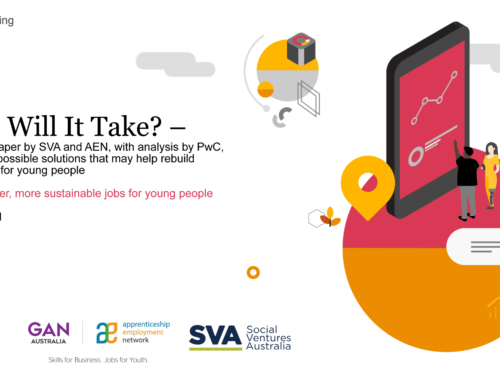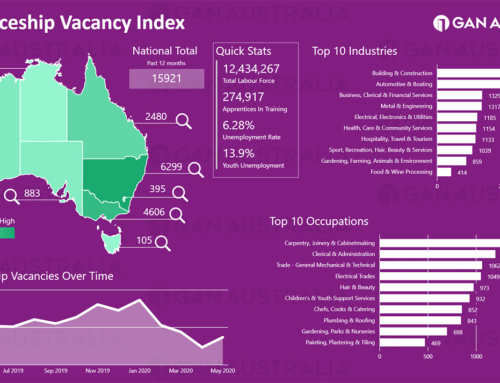When unemployment hit 10% we were undeniably in a crisis. It was 1983 and the unemployment rate which had crept up over the preceding decade was at its peak. Businesses had no certainty, given the unpredictable and fluctuating nature of the contracts coming through. Especially small and micro businesses were in no position to commit to full-time contracts, let alone train up new workers over the full duration of an apprenticeship.
But without training, the economy faced a devastating double whammy of skills shortages and an unskilled generation that would be condemned to indefinite unemployment. Something had to be done.
In the face of this crisis, the Commonwealth, State and Territory governments agreed that changes were needed to encourage the establishment of new apprenticeships and to stimulate employment opportunities. The Group Training Organisation was created in 1985.
That was 35 years ago. Now unemployment is once again soaring. Businesses affected by the sudden demand shock are laying off staff as contracts fall through. A generation of school-leavers faces an uncertain future. Businesses simply don’t have the certainty to commit to apprenticeships.
A survey of our members suggests around 3300 apprentices and trainees around Australia face having their employment cancelled. For many that means that they’ll not only be unemployed, but without a completed apprenticeship, also unemployable when things start looking up. Mass apprentice layoffs will lead to an unskilled generation. Skills shortages, already acute in some industries, will become widespread.
This is a different type of challenge to the last financial crisis, because social distancing and remote working requirements mean many hands-on jobs can’t be taught in the same way anymore. However it’s just as critical. We know that people who stay connected to the workforce are better able to bounce back after a recession. Job losses can easily become permanent if hard and soft skills atrophy. The long-term cost to the economy is high, but the long-term cost to the individual is immeasurable, leading to lower confidence, higher rates of mental health issues, and social dysfunction. So it’s vital we find creative solutions to help the young people at risk of losing their vocational education placements.
Group training organisations have managed to rotate around 40 apprentices who have lost their positions from businesses which could no longer hold onto them into new roles with businesses which are able to sustain their apprenticeship. In good times, rotation ensures the apprentice learns the full range of skills they will need to become a fully qualified practitioner in their field. In uncertain times, or sectors where employment cycles can vary by season or year, it allows for high levels of flexibility.
The rotations are just a drop in the ocean, but they’re a start. A range of support packages, including the 50% wage subsidy for businesses employing apprentices announced by government in March will help a bit, but businesses which are struggling to keep on fully productive staff need more to ensure training continuity for apprentices. Like the JobKeeper program, government subsidies should be structured to keep apprentices engaged with their training by delivering the funding through the employer and group training organisations to support employers that already utilise this flexible apprenticeship model.
These measures will help see us through the current crisis, but there are some lessons from the aftermath of the 2009 global financial crisis that we should also learn.
After 2009, apprentice and traineeship numbers never fully recovered. To prevent the same lasting slump, we need to start thinking now about how we can re-engage with employers and youth to initiate new apprenticeships from 2021 onwards and ensure Australia is building the skills that power our economy.
Over the last 35 years, close to thirty new schemes have been dreamt up and funded which ran in parallel to group training, but only group training has a proven track record of solving the challenges using the best evidence accumulated over that period. The uniquely Australian model has been recognised around the world for its exceptional flexibility and ability to develop high-quality professionals.
Now that the economy has sustained the greatest shock in living memory – possibly the greatest of all time – it is time to get back to basics. We need to go all-in on the measures that work to get people into work. A generation of school leavers depends on it. Our economy depends on it. The future can benefit from the experience of the past.
Gary Workman is the Executive Director of the Global Apprenticeship Network (Australia)






